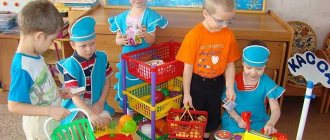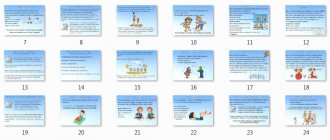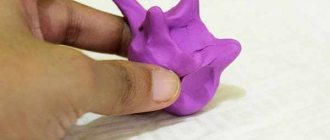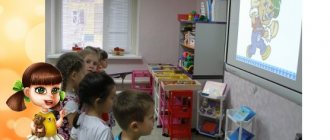Gaming technologies
Game technologies in chemistry lessons as a way to develop cognitive interest.
“Without play there cannot be full mental development. A game is a huge bright window through which a life-giving stream of ideas and concepts flows into the child’s spiritual world. Play is the spark that ignites the flame of inquisitiveness and inquisitiveness.” V. Sukhomlinsky
The purpose of the master class: to form an idea of the possibility of gaming technologies in the formation of cognitive interest in the study of chemistry.
Objectives: -Create conditions for the active use of gaming technology in teacher practice. -Identify the level of interest in this topic - Demonstrate the forms of activity of gaming technology.
Expected result: -Readiness of master class participants to use gaming technology in their lessons. Increasing the level of professional competence of participants in the main aspects of the demonstrated activities.
Equipment: Computer, projector, screen.
1.Organizational moment
Greeting and getting to know the participants of the master class, emotional mood for work. Good afternoon, dear colleagues! Before we start our event, I suggest defining a theme. Participants select letters of the same name. The remaining unpaired letters form a theme.
2. Theoretical part
The problem of motivation in learning arises in every school subject. Teachers who teach chemistry also encounter it. Chemistry remains one of the most difficult school disciplines, and it is the teacher who primarily depends on the understanding of chemical theories and laws, not as abstract ones, but as an integral part of a unified picture of the world. Teaching chemistry should be associated with the study of matter, understanding the essence of chemical phenomena, the foundations of chemistry as a science, acquiring stable knowledge of the subject and developing interest. I believe that without systematic repetition and consolidation of the studied material, it is impossible to achieve deep and lasting knowledge of students. An important role in this is played by the exercises and tasks that they perform in class and at home. I am convinced that when teaching chemistry at school, practical work plays an important role, for which, unfortunately, not enough time is allocated. Disclosure of social issues in the development of chemistry and chemical practice is the main task of the teacher when teaching in high school. In order to maintain interest in the subject and to strengthen the educational program at this stage of training, I use the project method - creating slide presentations for students on selected topics. At the final stage of teaching chemistry at school, existing chemical knowledge is generalized and systematized in the minds of students and the likelihood of choosing a profession related to the science of chemistry increases. The chemical education system at school contributes to this choice: many graduates choose chemistry as an elective subject when taking the Unified State Exam and choose specialties that have chemical knowledge as a basis. In order to prepare for the exam, you need to work on the appropriate elective course. I believe that the proposed system of teaching the subject of chemistry in our school is effective and promising. My task is to interest the student. The lesson should contain positive emotions, a feeling of comfort and the joy of learning. It is cognitive interest that forms solid knowledge. To activate the student’s cognitive activity, I use gaming technologies. The game teaches students to think and develop memory. As V.A. Sukhomlinsky wrote. “Game is the spark that ignites the flame of inquisitiveness and curiosity.” Didactic games used in lessons allow students to develop their creative abilities, as they stimulate search activity and destroy psychological inertia and apathy. Any game is aimed at developing the intellectual and emotional spheres of the student’s personality. Interest and pleasure are important psychological effects of play. Game technologies in teaching chemistry make it possible to solve the following problems: 1. Instilling interest in studying the subject. 2. Reducing student overload. 3. Activation of educational and cognitive activity of students. The goals of gaming technologies are: broadening one’s horizons, cognitive activity, and developing certain skills and abilities. Educating: nurturing independence, cooperation, collectivism, sociability, communication. Developmental: development of attention, memory, speech, thinking, skills to compare and contrast, creativity, reflection, ability to find optimal solutions, development of motivation for educational activities. Socializing: familiarization with the norms and values of society, adaptation to environmental conditions, stress control, self-regulation, communication training, psychotherapy. The concept of “game pedagogical technologies” includes a fairly extensive group of methods and techniques for organizing the pedagogical process in the form of various pedagogical games. Organizational forms of gaming activity (I.V. Markina): individual; single; steam room; group game; collective and mass form of the game. When using gaming technologies in chemistry lessons, the following conditions must be met: 1) compliance of the game with the educational goals of the lesson; 2) accessibility for students of a given age; 3) moderation in the use of games in lessons Classification of game lessons: -Entertaining lessons -Generalization lessons (instead of tests or tests) -Lessons explaining new material -Problem lessons -Integrated lessons with natural science subjects. The use of didactic games in chemistry lessons facilitates the learning process, makes it interesting and more meaningful, and this ultimately leads to better learning of the material and contributes to the formation and development of interest in chemistry. Types of games: Games-simulators. They usually take 10-15 minutes. These are a variety of crosswords, puzzles, chainwords, charades, puzzles, riddles, logical chains, games for finding similarities and differences, restoring what was missed, continuing a series, or removing unnecessary items, etc. A competition game can include all of the above types of didactic games or their individual elements. To conduct this type of game, students are divided into groups, teams, between which there is a competition. An essential feature of the competition game is the presence of competitive struggle and cooperation in it. Role-playing games (KVN, court lessons, quizzes). Any game is aimed at developing the intellectual and emotional spheres of the student’s personality. But the negative aspects of using games in the learning process should also be noted: 1) often explaining the rules and demonstrating the game takes a lot of time. This often leads to the fact that children do not have time to study or consolidate the material in the remaining time. 2) the mechanism of the game is often disrupted, i.e. the strict order of performing game actions is violated. 3) after games (especially for middle classes), it can be difficult to restore discipline in the classroom. 3. Practical part with participants of the master class I offer you several exercises on gaming technology. Tic Tac Toe." Cross out a number of substances.
| Cup | Glass | Clay |
| A drop | Water | Vase |
| Iron | Nail | Ruler |
Cross out a row of bodies.
| Notebook | Paper | Box |
| Wire | Water | Spoon |
| Shovel | Aluminum | Copper |
Choose chemical phenomena. From the letters corresponding to the correct answers, get a word denoting any changes (phenomena).
| Souring of milk | I |
| Rotting plant residues | V |
| Evaporation of water | A |
| Wood burning | l |
| Melting butter | 0 |
| Fog formation | m |
| Blackening of silver items | e |
| Photosynthesis | n |
| Mercury evaporation | P |
| Burning food in a frying pan | And |
| Rust formation | I |
Role-playing game “Pharmacy No. 8”.
1. Introduction to the work of pharmacy workers: types of professions, content of work of workers in these professions; types of public services used by the pharmacy team. 2. Weighing: required weighing accuracy, scales used in a pharmacy, their accuracy class; permissible degree of deviation in the preparation of medicines. 3. Preparation of solutions: their purpose, the most commonly used solutions, solvents used in the pharmacy, ways of expressing the concentration of solutions in the pharmacy. Case 1: Sarmat, 15 years old, schoolboy. Has problem skin. I came to the pharmacy to get some face wash. Chatterbox with Streptocide and sulfur
Chatter with streptocide and sulfur is effective in the treatment of skin rashes caused by the activity of subcutaneous mites, purulent lesions and large red pimples.
Mix 7 grams of streptocide and sulfur and dilute with 50 ml of 2% salicylic acid;
Add 50 ml of boric alcohol to the composition and mix thoroughly;
Skin treatment is carried out once a day after preliminary cleansing;
It is necessary to apply the mash using rubbing movements to improve the penetration of substances into the layers of the epidermis;
Case 2: Alina, 17 years old, student. Feels slightly unwell and has a sore throat. I ordered anti-grippin powder.
Antigrippin
-Powder 1 g: -Acetylsalicylic acid – 0.5; -Ascorbic acid - 0.3; -Calcium gluconate - 0.1; -Diphenhydramine - 0.02; -Rutin - 0.02;
Game “Who wants to become a chemist” Presentation
4. Reflection Colleagues, I was very pleased to communicate with you in such a friendly environment. I hope that you found something interesting for yourself, but most importantly, I wanted to create a good mood for you. (We have gaming technologies, after all). I ask you to continue the sentences: -today I learned... -I was interested... -I will try... -I was surprised... -I experienced it at the master class..... -It will be useful for me.... Thank you, dear colleagues, for your work at the master class, for your advice and wishes. I wish you success and good luck!




